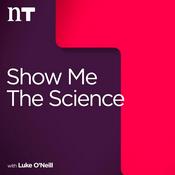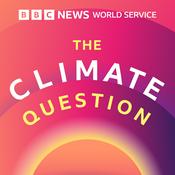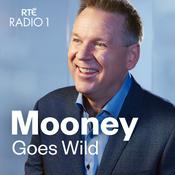Available Episodes
5 of 19
- EP #18 | Relevance & Communication | Dan SperberConversations shape nearly every aspect of our lives. We joke, argue, persuade, gossip, and comfort—all through spoken and unspoken signals we barely even notice. Yet behind every casual chat, awkward silence, or global debate is an invisible force that guides our words and meanings, silently helping us figure out exactly what to say next. How do we instinctively know what matters in a conversation? How do we effortlessly connect, even with strangers? And why do certain symbols or stories captivate us across cultures? Dan Sperber is a renowned French cognitive anthropologist, social scientist, and philosopher whose groundbreaking work has transformed fields from linguistics and cognitive science to anthropology and philosophy. Alongside linguist Deirdre Wilson, he developed relevance theory, an influential approach to communication and cognition that has impacted linguistics, artificial intelligence, and psychology. His work on cultural evolution, notably the epidemiology of representations, introduced innovative methods for studying how ideas spread and evolve across societies.Credits:Interview: Thomas Beuchot and Jay RichardsonEditing: Jay RichardsonCommunication: Tanay KatiyarMusic: Thelma Samuel and Robin BaradelArtwork: Ella BergruThis episode is sponsored by the The European Human Behaviour and Evolution Association (EHBEA)--------1:26:12
- EP #17 | The Anthropology of Leisure Time | Mark DybleWe often talk about the modern challenge of work-life balance. However, long before the existence of offices, commutes, and calendars, our ancestors lived as hunter-gatherers. Did they actually enjoy more leisure time than we do? And did the shift to farming mark the beginning of longer workdays and less free time? Today’s guest is the person to answer these questions, or at least some of them…Mark Dyble is an Assistant Professor in evolutionary anthropology at the University of Cambridge. He has broad interests in understanding variation in behaviour and biology across human populations. Previously, he gained his BA in Archaeology and Anthropology from Cambridge (2008-2011) and an MSc in Cognitive and Evolutionary Anthropology from Oxford (2011-12). Subsequently, he pursued a PhD in Anthropology at University College London (2013-16), supervised by Prof Andrea Migliano and Prof Ruth Mace, conducting empirical fieldwork with Agta foragers in the northern Philippines. After several post-doc stints, he was also a lecturer in Quantitative Anthropology at UCL for four years (2019-2023).Credits:Interview: Tanay KatiyarEditing: Jay RichardsonCommunication: Tanay KatiyarMusic: Thelma Samuel and Robin BaradelArtwork: Ella Bergru--------54:21
- EP #16 | What do Auditory Illusions Reveal about the Brain? | Daniel PressnitzerDaniel Pressnitzer. Originally trained in engineering, he went on to complete a Master's degree in acoustics, signal processing, and computer science in Paris. He earned his PhD at Ircam, where he studied auditory perception, focusing on musical consonance and dissonance. He then spent several years in the UK conducting postdoctoral research at the Centre for the Neural Basis of Hearing in Cambridge. In 2000, he returned to France to join the CNRS as a researcher. Now a Director of Research at CNRS, he is also a founding member and the current head of the Audition team at the École normale supérieure. His research bridges acoustics, perception, and cognition, using carefully crafted illusions and experiments to probe the mid-level processes of hearing — the ones that shape how we interpret the world without us even realizing it. His lab has also developed various tools to probe the functioning of the auditory system.Credits:Interview: Cindy Zhang & Marius MercierEditing: Jay RichardsonCommunication: Tanay KatiyarMusic: Thelma Samuel and Robin BaradelArtwork: Ella Bergru--------1:05:03
- EP #15 | Social Media and Mental Health: The Cognitive Turn | Georgia Turner & Lukas GunscheraIn our episode with Amy Orben, we discussed a big problem in the research on how social media potentially affects mental health. That is, a lot of studies ask really vague, broad questions. For instance, asking 'What is social media doing to our mental health?' is like asking 'How does food affect young people’s health?' To really answer the latter question, we need to get more specific—are we talking about junk food or vegetables? And what about the kid’s health history, like if they have diabetes? Some researchers think that using well-established theories from cognitive science can solve this problem by helping us ask better, more precise questions about social media. They also think it could lead to new ways of studying it (beyond self-reported screen time) and potentially offer novel policy insights. So, what are these ideas from cognitive science? What new methods can we use? And how could they change things at the policy level? Our guests today are here to help answer those questions—or at least some of them...Georgia Turner is a third-year PhD student in the Digital Mental Health Group, supervised by Amy Orben at the University of Cambridge. In her PhD, she aims to understand why we feel we lose control of our technology use. To do so, she uses methods from computational neuroscience on real-world datasets such as Twitter and smartphone recordings. As an undergraduate at Cambridge, Georgia studied Philosophy for two years before switching to Natural Sciences. She then completed a masters in neuroscience in London (UCL) and Paris (Sorbonne and ENS).Lukas Gunschera is a second-year PhD student in the Digital Mental Health Group, supervised by Amy Orben at the University of Cambridge. He is interested in the cognitive mechanisms linking social media use and mental health. In his research, he uses a combination of computational, longitudinal, and experimental approaches to examine the processes driving the effects of social media use. Before starting his PhD, Lukas completed an MSc in Psychological Research at the University of Amsterdam, and a BSc in Psychology at the Radboud University.Credits:Interview: Tanay KatiyarArtwork: Ella BergruEditing: Jay RichardsonMusic: Thelma Samuel and Robin BaradelCommunication: Tanay Katiyar--------51:45
- EP #14 | How can Social Media Affect Mental Health? | Amy OrbenHumans inhabit a social world. With the march of history and the discovery of novel technologies, our ability to socialise has been in a state of constant flux to varying degrees. However, modes of human interaction have undergone a massive shift in the 21st century with the emergence of smartphones and social media platforms. According to a Pew report, almost half of US teens say that they are online ‘almost constantly’. This is understandably terrifying for the previous generation, especially parents of young people, witnessing this shift in sociality. Simultaneously, in the current public discourse, claims about the negative impact of these technologies on mental health and cognition are widespread. But what does the relevant science say? What can it say? Should we really be worried? If so, what precisely should these worries be? Today’s guest is here to answer all these questions, or at least some of them.Amy Orben is a Programme Leader Track Scientist at the MRC Cognition and Brain Sciences Unit (CBU) and a Fellow at St. John's College, University of Cambridge. She leads the Digital Mental Health programme at the MRC CBU. She is a multi-award winning psychologist and a world expert on examining how digitalisation & social media use impact adolescent mental health. Prior to leading the digital mental health programme at Cambridge, she completed an MA in Natural Sciences at the University of Cambridge before joining the University of Oxford to obtain her DPhil in Experimental Psychology, for which she was awarded the BPS Award for Outstanding Doctoral Research 2019.Book recommended by AmyBehind Their Screens: Carrie James and Emily WeinsteinCredits:Interview: Tanay KatiyarArtwork: Ella BergruEditing: Jay RichardsonMusic: Thelma Samuel and Robin BaradelCommunication: Tanay Katiyar and Marius Mercier--------1:19:43
More Science podcasts
Trending Science podcasts
About Cognitations
The Cognitations podcast explores how the fascinating quirks of the mind and the world can be understood through the lens of cognitive science. Recorded at several universities like the University of Cambridge, École normale supérieure (ENS - Paris) & Université Grenoble Alpes, the podcast provides insights from leading scientists in the field.
Podcast websiteListen to Cognitations, The Infinite Monkey Cage and many other podcasts from around the world with the radio.net app

Get the free radio.net app
- Stations and podcasts to bookmark
- Stream via Wi-Fi or Bluetooth
- Supports Carplay & Android Auto
- Many other app features
Get the free radio.net app
- Stations and podcasts to bookmark
- Stream via Wi-Fi or Bluetooth
- Supports Carplay & Android Auto
- Many other app features


Cognitations
Scan code,
download the app,
start listening.
download the app,
start listening.























![Podcast Cosmosis [Formerly The UFO Rabbit Hole]](https://ie.radio.net/podcast-images/175/the-ufo-rabbit-hole-podcast.jpeg?version=c4cfeed14331265219e0263fd62be755644a8cf4)













